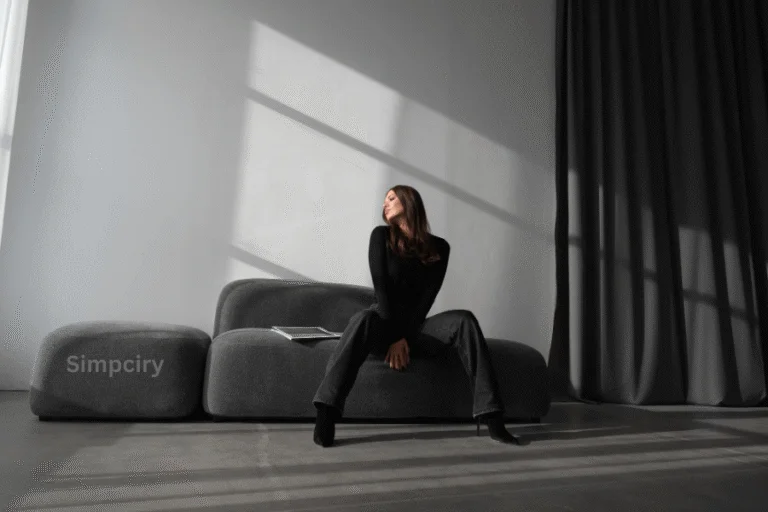Simpciry: Understanding the Concept
In our fast-paced world, new words and concepts emerge almost every day. Some fade away as quickly as they appear, while others slowly grow into meaningful ideas that capture people’s attention. One such term is “Simpciry.” Though not commonly recognized in dictionaries, the word has started to surface across online discussions, creative projects, and conversations about modern lifestyles. At first glance, it may sound unusual, but like many contemporary expressions, Simpciry carries depth once explored.
This article will unpack the meaning of Simpciry, explore its possible origins, analyze how it relates to simplicity, minimalism, and modern living, and reflect on why such concepts resonate strongly today. By the end, you’ll understand how Simpciry goes beyond just being a word—it can symbolize a mindset for personal growth, balance, and clarity.
1. What Does “Simpciry” Mean?
The term Simpciry appears to be a creative blend or reinterpretation of the word simplicity. While simplicity refers to the quality of being clear, natural, and unburdened by excess, Simpciry adds a fresh layer of interpretation. It represents not just the absence of complexity but a conscious choice to live with clarity and intentional focus.
In essence, Simpciry can be understood as:
-
A lifestyle: Prioritizing what truly matters while letting go of distractions.
-
A philosophy: Believing that clarity and contentment come from less clutter—both physical and mental.
-
A personal practice: Aligning habits, routines, and goals toward meaningful simplicity rather than unnecessary complexity.
Whereas simplicity might sometimes be seen as passive or basic, Simpciry implies an active decision, a kind of self-directed journey toward balance.
2. Origins of the Concept
Although Simpciry is not yet formally defined in language authorities, its structure suggests it was derived from “simplicity” but stylized differently to stand out. Modern digital culture often gives rise to such terms. Platforms like Twitter, TikTok, or Reddit are filled with reshaped words that convey familiar ideas with a unique twist.
Some possible inspirations for the term could include:
-
Minimalism movements that emphasize living with fewer possessions and prioritizing experiences over materialism.
-
Mindfulness practices where simplicity in thought and focus leads to greater peace.
-
Digital trends where re-spelled or stylized words create new identities, memes, or community symbols.
Over time, words like aesthetic, vibe, mindful, or minimal have shaped how people talk about lifestyle values. Simpciry could well be part of this same evolution, giving people a more personalized way to express the timeless pursuit of simplicity.
3. The Philosophy Behind Simpciry
At its heart, Simpciry is not about deprivation but about direction. It’s not about owning nothing, avoiding fun, or living without technology. Instead, it is about making thoughtful choices that lead to more peace and purpose.
Some philosophical pillars of Simpciry include:
a. Intentional Living
Simpciry urges us to ask: Do I really need this? Does this add value to my life? By filtering choices through intentionality, one naturally avoids clutter—whether that’s in a wardrobe, a schedule, or even in emotional relationships.
b. Clarity Over Noise
In a world overloaded with information and distractions, clarity is rare. Simpciry emphasizes filtering out the noise to focus on signals that matter. For example, limiting social media scrolling to create more time for learning or deep conversations.
c. Balance Between Work and Rest
Simpciry also highlights the need for balance. It does not glorify being busy or overworked. Instead, it values productivity paired with rest, ambition balanced with mindfulness.
d. Sustainability and Care
Living with Simpciry often aligns with sustainable choices. Owning fewer but high-quality items reduces waste. Living consciously benefits both personal well-being and the planet.
4. Simpciry in Everyday Life
Applying Simpciry is not about a drastic overnight change. It’s about small but meaningful shifts that compound into a lifestyle. Here’s how Simpciry can be practiced in different aspects of life:
a. At Home
-
Decluttering spaces by keeping only what is useful or meaningful.
-
Designing rooms with calm colors and minimal furniture for peace of mind.
-
Prioritizing experiences—like shared meals or conversations—over constant material upgrades.
b. In Work and Career
-
Avoiding unnecessary multitasking and focusing on one task at a time.
-
Simplifying schedules with realistic goals instead of overwhelming to-do lists.
-
Choosing meaningful projects over chasing endless external approval.
c. In Relationships
-
Being present instead of distracted when spending time with loved ones.
-
Valuing depth over number—fewer genuine connections over countless shallow acquaintances.
-
Practicing honest communication rather than unnecessary drama.
d. In Digital Life
-
Curating social media feeds to inspire instead of overwhelm.
-
Taking digital detoxes to reconnect with the physical world.
-
Simplifying digital tools—using apps that truly help, not clutter devices.
5. Simpciry vs. Simplicity: What’s the Difference?
Though similar, there is a subtle difference between simplicity and Simpciry.
-
Simplicity often refers to the quality of being simple—something natural or basic. For example, a simple meal, a simple explanation, or a simple design.
-
Simpciry, on the other hand, is an intentional choice—not just something that happens, but something practiced. For example, choosing to declutter your home, setting boundaries with technology, or structuring life around clarity and peace.
In short, simplicity can be accidental; Simpciry is deliberate.
6. Why Simpciry Matters in Today’s World
Modern life is filled with noise—constant notifications, societal pressures, consumerism, and endless responsibilities. This environment often leads to stress, anxiety, and dissatisfaction.
Simpciry matters because it is a remedy to modern chaos.
-
It teaches us that more is not always better.
-
It reminds us that peace comes not from external possessions but from inner clarity.
-
It empowers us to reclaim control over time, attention, and energy.
In an era where burnout is common, Simpciry offers a refreshing antidote: living intentionally, choosing balance, and valuing clarity over excess.
7. The Connection Between Simpciry and Minimalism
Minimalism is often about reducing possessions and decluttering life. While Simpciry overlaps with minimalism, it goes a step further.
-
Minimalism: Owning less.
-
Simpciry: Living with clarity.
For example, someone could own very few items but still live a stressful life full of commitments and distractions. That’s minimalism without Simpciry. On the other hand, someone practicing Simpciry might still own a moderate number of items, but each is chosen with purpose, and their lifestyle reflects balance and mindfulness.
8. Practical Steps to Embrace Simpciry
If you want to integrate Simpciry into your life, here are some practical steps:
-
Declutter your environment: Start small, like organizing a desk or closet.
-
Simplify your routines: Create a morning ritual with just 2–3 essential steps.
-
Set digital boundaries: Limit screen time and curate online spaces.
-
Practice mindful consumption: Buy only what truly adds value.
-
Focus on quality relationships: Spend time with those who uplift and inspire.
-
Reflect often: Journal or meditate to ensure your actions align with values.
Each of these practices slowly builds a lifestyle of Simpciry.
9. Challenges of Practicing Simpciry
Like any meaningful philosophy, Simpciry is not without challenges. Society constantly pushes consumerism, productivity obsession, and comparison culture. Practicing Simpciry may feel like swimming against the current.
Some common obstacles include:
-
Fear of missing out (FOMO).
-
Pressure to keep up with trends.
-
Difficulty saying no to commitments.
-
Resistance from peers who may not understand the lifestyle.
Yet, overcoming these challenges makes the journey more rewarding. Every small step toward Simpciry leads to greater clarity and peace.
10. The Future of Simpciry
As awareness about mental health, sustainability, and work-life balance grows, the philosophy of Simpciry will likely gain more traction. Just as minimalism, mindfulness, and slow living have become global movements, Simpciry could become a guiding word for the next generation.
It provides a language to express a growing desire: the desire to live better, not busier.
Conclusion
Simpciry may be a new and evolving term, but it encapsulates a timeless truth: life feels lighter, freer, and more meaningful when we strip away excess and focus on clarity. Unlike simplicity, which can occur naturally, Simpciry is about consciously shaping one’s lifestyle around balance, purpose, and intentional choices.
In a chaotic world, Simpciry is not just a word—it is an invitation. An invitation to slow down, to focus on what matters, and to live with harmony. Whether through decluttering, mindful habits, or deeper relationships, Simpciry empowers us to design a life that truly feels our own.
Ultimately, the journey of Simpciry is not about perfection but about direction—choosing clarity over clutter, meaning over noise, and peace over pressure. And that is a philosophy worth embracing.














Post Comment